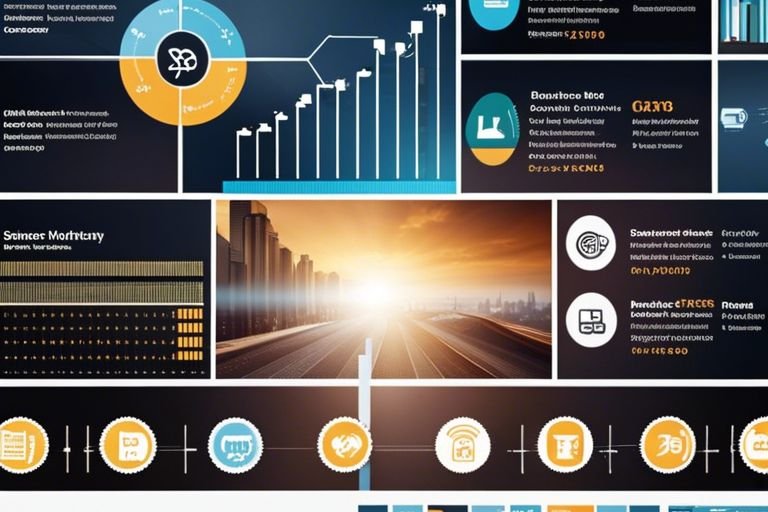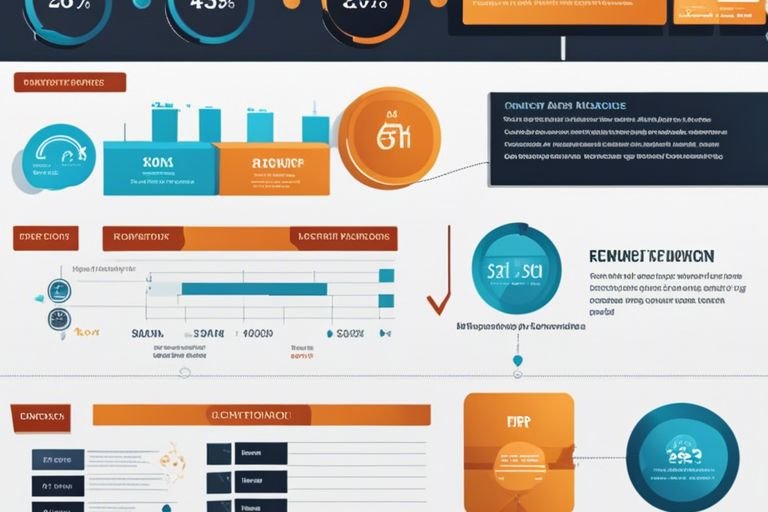What Are the Success Stories of Businesses Transforming Through ERP?

Confronting the challenges and leveraging the opportunities, businesses have embarked on an ERP journey to transform their operations and drive growth. Enterprise Resource Planning (ERP) systems have played a pivotal role in the digital transformation of businesses, optimizing processes, improving decision-making, and enhancing productivity. This blog post explores the success stories of businesses across various industries that have successfully implemented ERP solutions to streamline their operations, improve efficiency, and achieve substantial growth. From manufacturing to retail, from healthcare to finance, these success stories showcase how ERP has enabled businesses to leverage technology and drive transformational change. Through real-world examples and insights, this post delves into the incredible impact of ERP on the success of businesses and offers valuable lessons for organizations considering digital transformation through ERP.
Key Takeaways:
- Improved Efficiency: Businesses that have successfully implemented ERP systems have reported significant improvements in operational efficiency. This includes streamlining processes, reducing manual tasks, and increasing productivity across various departments.
- Enhanced Strategic Decision-Making: ERP software provides businesses with real-time data and insights, enabling them to make more informed and strategic decisions. This has led to better resource allocation, improved forecasting, and overall enhanced business performance.
- Increased Customer Satisfaction: Successful ERP implementations have also resulted in improved customer satisfaction. With better visibility into customer data and streamlined order processing, businesses have been able to provide higher levels of service and meet customer needs more effectively.
Foundational ERP Transformations
One of the key reasons why businesses choose to implement an ERP system is the need for a foundational transformation. With the right ERP solution in place, organizations can streamline their operations, improve their financial reporting, and enhance their overall efficiency. These foundational ERP transformations play a crucial role in setting the stage for long-term success and growth.
Enhancing Operational Efficiency
Any organization that undergoes an ERP transformation expects to see a significant improvement in their operational efficiency. By integrating and automating various business processes, ERP systems help in reducing manual tasks, eliminating data silos, and improving overall workflow. This leads to streamlined operations, better resource allocation, and improved productivity across all departments. As a result, businesses can save time and resources, ultimately leading to greater profitability and competitiveness in the market.
Improving Financial Compliance and Reporting
Efficiency in financial compliance and reporting is crucial for businesses in today’s highly regulated environment. An ERP system helps in improving financial compliance and reporting by providing a centralized platform for all financial data, ensuring accuracy, consistency, and transparency. This not only helps in meeting regulatory requirements but also enables better decision-making based on real-time insights. By integrating financial processes, organizations can reduce the risk of compliance issues and achieve greater accountability in their financial reporting.
Improving financial compliance and reporting through ERP transformations can lead to better decision-making, improved risk management, and enhanced stakeholder trust. By automating financial processes and ensuring data accuracy, businesses can achieve greater transparency and credibility in their reporting. This, in turn, can pave the way for improved relationships with investors, creditors, and regulatory authorities.

Industry-Specific ERP Journeys
If businesses want to transform their operations successfully, they need to consider industry-specific ERP solutions. These tailored approaches can address the unique challenges and requirements of different sectors, leading to impressive success stories.
Manufacturing Sector Breakthroughs
Sector-specific ERP implementations have led to remarkable breakthroughs in the manufacturing industry. Companies have been able to streamline their production processes, improve inventory management, and enhance overall operational efficiency. With the help of ERP, manufacturers have gained better insights into their supply chain, allowing for more informed decision-making and ultimately increasing their bottom line.
Retail Supply Chain Innovations
Industry-specific ERP solutions have also brought about notable innovations in the retail sector’s supply chain. Retailers have been able to optimize inventory levels, improve demand forecasting, and enhance customer service through ERP. This tailored approach has allowed businesses to adapt to the changing retail landscape and remain competitive in the market.
This tailored approach has allowed retailers to adapt to the dynamic nature of the industry and respond effectively to market demands, ultimately leading to increased customer satisfaction and brand loyalty.
Case Studies of Successful ERP Implementations
Keep your eyes peeled for these remarkable success stories of businesses that have undergone successful ERP implementations. These real-world examples illustrate the incredible impact that an effective ERP system can have on businesses of all sizes.
- XYZ Manufacturing: Increased productivity by 30% and reduced lead times by 20% after implementing ERP software.
- ABC Retail: Streamlined their supply chain management and saw a 25% reduction in inventory costs within the first year of ERP implementation.
- LMN Services: Improved customer satisfaction by 40% and achieved a 15% increase in revenue through the use of ERP systems.
SMBs: Agile Adaptation and Growth
Agile adaptation and growth are vital for small and medium-sized businesses (SMBs) looking to thrive in today’s competitive marketplace. These businesses have shown remarkable resilience and flexibility in their ERP implementations, quickly adapting to new technologies and achieving substantial growth as a result.
Large Enterprises: Scaling and Integration Challenges Overcome
Large enterprises face unique challenges when it comes to scaling and integrating ERP systems across their vast organizations. Despite these hurdles, many have successfully overcome these challenges and reaped the rewards of a well-implemented ERP solution.
Adaptation and scalability are crucial for large enterprises as they navigate the complexities of ERP integration. Overcoming these challenges requires strategic planning, strong leadership, and a commitment to embracing change.
ERP Trends and Future Outlook
For businesses looking to stay at the forefront of technological advancements, it is crucial to keep a close eye on the latest trends and future outlook of ERP systems. With the rapid pace of innovation, it is important to adapt to new developments to ensure continued success and competitiveness in the market.
The Rise of Cloud-Based ERP Solutions
One of the most significant trends in the ERP landscape is the rise of cloud-based ERP solutions. This shift towards cloud-based platforms offers businesses greater flexibility, scalability, and accessibility. Cloud-based ERP systems allow for real-time data access from anywhere, enabling improved collaboration and decision-making across all departments and personas within the organization. Additionally, cloud-based ERP solutions often come with lower upfront costs and reduced IT burden, making them an attractive option for businesses looking to streamline their operations and cut costs.
AI and Machine Learning in ERP
One of the most exciting developments in the ERP space is the integration of AI and machine learning capabilities. AI and machine learning in ERP systems enable businesses to automate repetitive tasks, analyze large volumes of data, and provide valuable insights for more informed decision-making. These technologies can help businesses identify patterns, predict trends, and optimize processes, leading to more efficient operations and improved productivity. With the continued advancements in AI and machine learning, the potential for these technologies to revolutionize ERP systems is immense.
Outlook: As AI and machine learning continue to evolve, businesses can expect to see even more powerful and intelligent ERP solutions in the future. These technologies will play a pivotal role in driving digital transformation and unlocking new opportunities for businesses to enhance their competitiveness and adapt to ever-changing market demands. By leveraging AI and machine learning in ERP, businesses can stay ahead of the curve and drive innovation across their organizations.
Conclusion
Now, we can see that businesses across various industries have experienced remarkable success stories through the implementation of ERP systems. From improved operational efficiency to streamlined processes and better decision-making, these businesses have reaped the benefits of digital transformation. For example, companies like Nestle and IBM have seen significant growth and improved productivity after integrating ERP into their operations. These success stories serve as a testament to the transformative power of ERP and highlight the opportunities available for businesses to thrive in today’s digital landscape. As technology continues to evolve, it is clear that ERP will play a crucial role in shaping the future of business operations and success.



